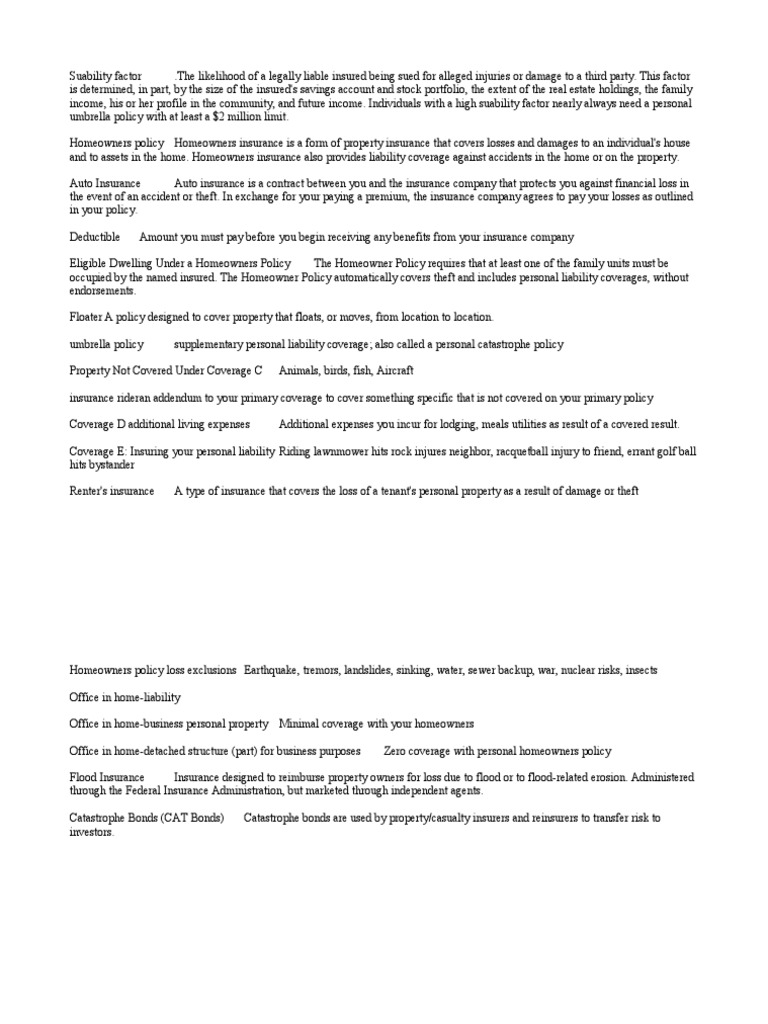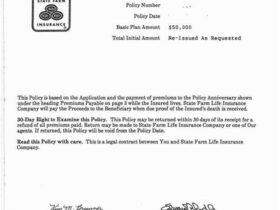A Property and Casualty (P&C) license is a professional credential that allows individuals to sell, solicit, or negotiate property and casualty insurance products. These products provide financial protection against losses or damages to property, as well as liability coverage for injuries or damages caused to others. Obtaining a P&C license opens doors to various career opportunities in the insurance industry, making it a valuable asset for those seeking a stable and rewarding profession. This article provides a comprehensive overview of what a P&C license entails, its requirements, and the career paths it can unlock.
Understanding Property and Casualty Insurance
Property insurance covers physical damage or loss to real estate and personal belongings. This includes coverage for events such as fire, theft, vandalism, and natural disasters. Casualty insurance, on the other hand, provides liability coverage, protecting individuals and businesses from financial losses if they are found legally responsible for causing harm to others or their property.
Together, property and casualty insurance forms a crucial part of the financial safety net for individuals and businesses alike. A P&C license equips professionals with the knowledge and authority to advise clients on the appropriate coverage options to protect their assets and mitigate potential risks.
Who Needs a P&C License?

Anyone who wants to sell, solicit, or negotiate property and casualty insurance products typically needs a P&C license. This includes:
- Insurance Agents: Individuals who work directly with clients to assess their insurance needs and recommend suitable policies.
- Insurance Brokers: Professionals who represent clients and search for the best insurance coverage options from multiple insurance companies.
- Insurance Adjusters: While adjusters often need a separate adjuster license, a P&C license can be beneficial for those handling property damage claims.
- Customer Service Representatives: Those who discuss policy details and coverage options with customers may also require a P&C license.
The specific requirements for obtaining a P&C license can vary by state, but the general process remains consistent across most jurisdictions.
Requirements for Obtaining a P&C License
The process of obtaining a P&C license typically involves several steps:
Pre-Licensing Education: Completing a state-approved pre-licensing education course is usually the first step. These courses provide a comprehensive overview of property and casualty insurance principles, policy provisions, state regulations, and ethical considerations. The required number of hours varies by state.
Licensing Exam: After completing the pre-licensing education, candidates must pass a state-administered licensing exam. The exam typically consists of multiple-choice questions covering a wide range of topics related to property and casualty insurance.
Background Check: Most states require applicants to undergo a background check, which may include fingerprinting and a criminal history review. This ensures that licensed insurance professionals meet certain ethical and legal standards.
Application Submission: Once the pre-licensing education is complete, the exam is passed, and the background check is cleared, applicants can submit their license application to the state insurance department.
License Maintenance: After obtaining a P&C license, it is essential to maintain it by completing continuing education requirements and paying renewal fees. Continuing education ensures that insurance professionals stay up-to-date on industry changes and regulatory updates.
Career Paths with a P&C License

A P&C license opens up a wide range of career opportunities in the insurance industry. Some of the most common career paths include:
- Insurance Agent: Insurance agents work directly with clients to understand their needs and recommend appropriate insurance coverage. They can work for a single insurance company (captive agents) or represent multiple insurers (independent agents).
Insurance Broker: Insurance brokers act as intermediaries between clients and insurance companies, helping clients find the best coverage options at competitive prices. They often specialize in specific types of insurance, such as commercial property insurance or workers’ compensation.
Underwriter: Underwriters assess the risk associated with insuring a particular property or liability and determine the appropriate premium. They analyze various factors, such as the property’s location, construction, and loss history, to make informed underwriting decisions.
Claims Adjuster: Claims adjusters investigate insurance claims to determine their validity and the extent of the insurer’s liability. They work with policyholders, witnesses, and other parties to gather information and negotiate settlements. While a separate adjuster license is often required, a P&C license provides a strong foundation for this career path.
Risk Manager: Risk managers identify and assess the risks faced by organizations and develop strategies to mitigate those risks. They may work for corporations, government agencies, or non-profit organizations. A P&C license can be valuable for risk managers who need a deep understanding of insurance principles and coverage options.
The Value of Continuing Education

The insurance industry is constantly evolving, with new products, regulations, and technologies emerging regularly. Continuing education is crucial for P&C license holders to stay up-to-date on these changes and maintain their professional competence. Continuing education courses cover a wide range of topics, including:
- Policy Updates: Changes to insurance policies and coverage provisions.
- Regulatory Compliance: Updates to state and federal insurance regulations.
- Ethical Considerations: Ethical issues and best practices in the insurance industry.
- Industry Trends: Emerging trends and technologies in the insurance market.
By completing continuing education, P&C license holders can enhance their knowledge, improve their skills, and provide better service to their clients.
The Future of the P&C Insurance Industry
The property and casualty insurance industry is expected to continue to grow in the coming years, driven by factors such as population growth, economic development, and increasing awareness of risk management. Technological advancements, such as data analytics and artificial intelligence, are also transforming the industry, creating new opportunities for insurance professionals with the right skills and knowledge.
A P&C license provides a solid foundation for a successful career in this dynamic and evolving industry. By staying informed, embracing new technologies, and providing excellent service, P&C license holders can thrive in the years to come.
Conclusion
Obtaining a Property and Casualty (P&C) license is a significant step towards a rewarding career in the insurance industry. It requires dedication, hard work, and a commitment to ongoing learning. However, the benefits of holding a P&C license are numerous, including increased job opportunities, higher earning potential, and the satisfaction of helping individuals and businesses protect their assets and manage their risks. Whether you are just starting your career or looking to advance your existing skills, a P&C license can be a valuable asset.





Leave a Reply